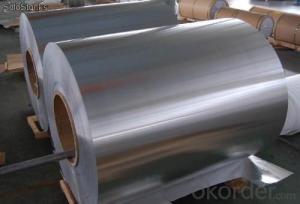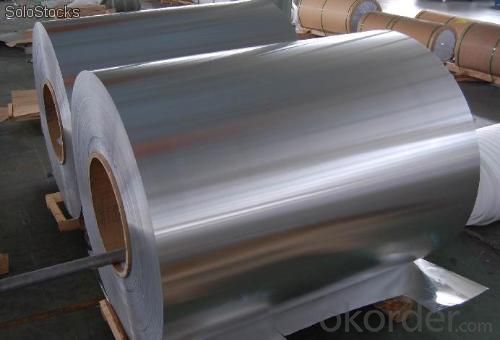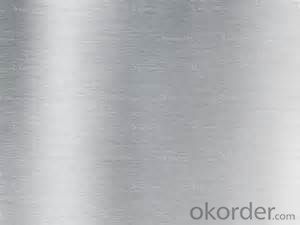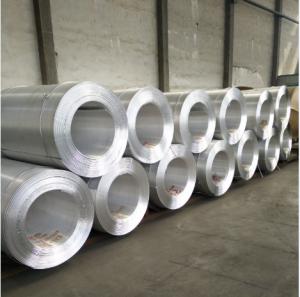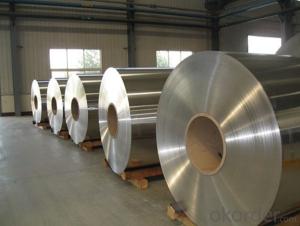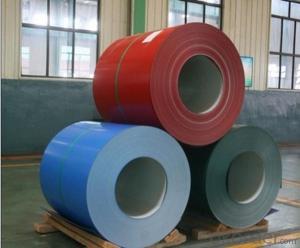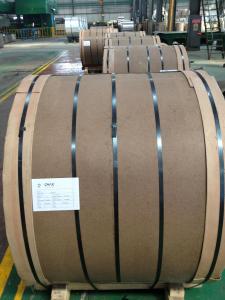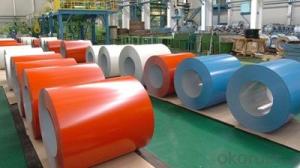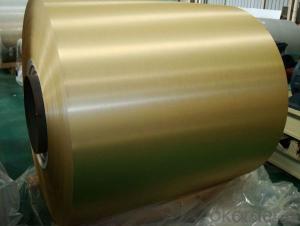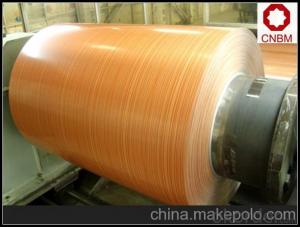Aluminum Coil Anodizing Corporation Aca - Hot Sale AA1100 Aluminum Coil/Roll
- Loading Port:
- Shanghai
- Payment Terms:
- TT OR LC
- Min Order Qty:
- 5 m.t.
- Supply Capability:
- 1000000 m.t./month
OKorder Service Pledge
OKorder Financial Service
You Might Also Like
1.Structure of Alumunum Coil/Roll in Hot Sale AA1100:
Alumunum Coil/Roll in Hot Sale AA1100is designed for many field such as electronics, instruments, lighting decoration, packing industry, and house decoration, curtain wall, honeycomb-core panel, sandwich panel, aluminum composite panel, aluminum composite pipe etc.. Alumunum Coil/Roll in Hot Sale AA1100 is hard and everlasting under the blazing sun. You can choose the alloys as your habitation and we will do our best to meet your requests.
2.Main Features of Alumunum Coil/Roll in Hot Sale AA1100:
• Smooth surface
• High manufacturing accuracy
• High strength of extension and yield
• Well packaged
• No marks, no scratch, no excessive oil
3. Alumunum Coil/Roll
Alloy: | AA1050, 1060, 1070, 1100, 3003, 3004, 3005, 3105, 5052, 5083, 5754, 8011, 8006 |
Temper: | H14, H16, H18, H22, H24, H26, H32, O/F |
Thickness: | 0.2-100mm |
Width: | 30mm-1700mm |
4. Production of Alumunum Coil/Roll in Hot Sale AA1100
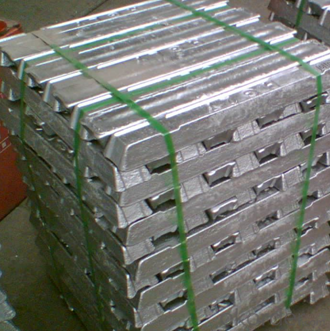
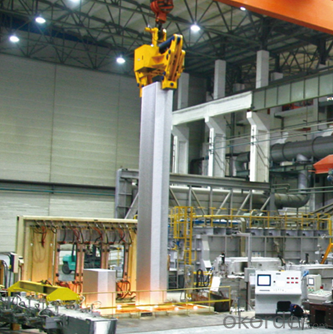
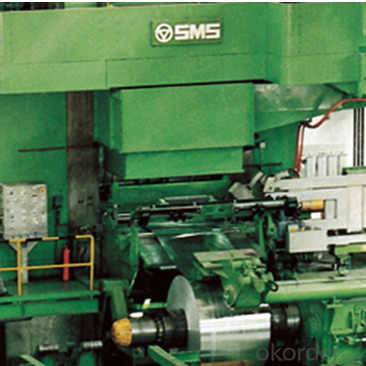
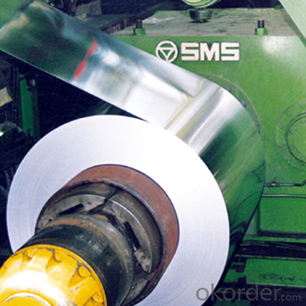
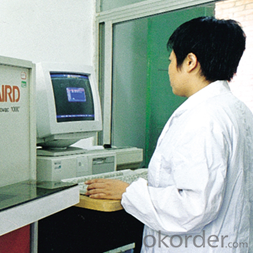
5.FAQ
We have organized several common questions for our clients,may help you sincerely:
① How about your company?
A world class manufacturer & supplier of aluminum coil and alloy blanks. Aluminum production base is comprised of 18 aluminum annealers, 10 coil and foil mills, 4 continuous production lines, 2 hot rolling production line and 3 prepainted lines.
Export 5000 tons per month to Asia, America and Middle East. Always do the best for our clients.
②Can you guarantee the quality of the products?
We are responsible for the quality of materials to get a long-term cooperation with clients in a reasonable period of time and we are glad to arrange and coordinate any third party inspection for you.
③What is the delivery time after purchase?
35 day after receiving client’s deposit or correct LC
- Q: Difference between aluminium roll gate and iron roll gate
- Structurally, there is no difference, but the aluminum roll gate weight is light, the motor needs little effect, save power; and the iron roll gate weight, motor power, electricity, but the door of high strength, better safety performance.
- Q: Can aluminum coils be painted or coated with different colors?
- Yes, aluminum coils can be painted or coated with different colors.
- Q: What are the different coil handling options available for aluminum coils?
- Aluminum coils have several options for handling, depending on the user's preferences and specific requirements. Some commonly used options include: 1. Coil Cradles: These are horizontal racks or frames that provide support and stability for aluminum coils during storage or transportation. They come in various sizes and designs to accommodate different coil dimensions. 2. Coil Cars: These mobile platforms have lifting mechanisms to easily move aluminum coils between different processing stations. They can be manually operated or automated, depending on the desired level of automation. 3. Coil Turnstiles: These rotating devices hold multiple coils vertically, allowing for easy access to individual coils without heavy lifting or rearranging. They are ideal for high-volume production environments that require quick coil changeovers. 4. Coil Upenders: Specialized equipment used to rotate or flip aluminum coils to change their orientation. They are useful for loading or unloading coils in a vertical position or for specific processes that require a particular coil orientation. 5. Coil Lifters: Specifically designed lifting devices for aluminum coils. They have adjustable arms or clamps to securely grip the coil for safe and efficient lifting. Available in manual, semi-automatic, and fully automated models. 6. Coil Tippers: Used to tilt or incline aluminum coils for various purposes such as coil feeding or inspection. They can be operated manually or powered by hydraulic or pneumatic systems. 7. Coil Stackers: Used to neatly stack and store aluminum coils vertically. They have adjustable arms or forks to accommodate different coil sizes, optimizing storage space and ensuring easy access when needed. These examples showcase the variety of coil handling options available for aluminum coils. Each option has its own advantages and suitability for different applications or industries. Careful consideration of specific requirements and constraints is essential when selecting the most appropriate coil handling solution.
- Q: What are the environmental effects of utilizing aluminum coil?
- <p>Aluminum coil usage has several environmental impacts. While aluminum is recyclable and has a lower carbon footprint than some other metals, its production requires significant energy, leading to CO2 emissions. The mining and refining processes can also lead to habitat destruction and water pollution. However, its lightweight nature can reduce fuel consumption in transportation, mitigating some environmental effects. The recycling of aluminum saves energy and reduces waste, making it a more sustainable choice over time.</p>
- Q: How are aluminum coils used in insulation applications?
- Aluminum coils are commonly used in insulation applications as they are lightweight, durable, and have excellent thermal conductivity properties. They are typically used to create a radiant barrier or reflective insulation, where they are installed between the outer walls or roofs of a building and the insulation material. The reflective surface of the aluminum coil helps to reflect radiant heat away from the building, reducing heat transfer and improving energy efficiency. Additionally, aluminum coils are also used in HVAC systems to create air ducts that ensure proper insulation and prevent heat loss or gain.
- Q: Are aluminum coils suitable for heat sinks?
- Yes, aluminum coils are suitable for heat sinks. Aluminum is a lightweight, highly conductive material that efficiently transfers heat away from electronic components. Its excellent thermal conductivity and corrosion resistance make it a popular choice for heat sink applications.
- Q: Are aluminum coils suitable for roofing?
- Yes, aluminum coils are indeed suitable for roofing. Aluminum is a highly durable and lightweight material that has been widely used in the construction industry for roofing purposes. It offers numerous benefits such as being resistant to rust, corrosion, and fire, making it an ideal choice for areas with harsh weather conditions or high humidity. Aluminum coils are also known for their excellent thermal conductivity, which helps in reflecting sunlight and reducing energy consumption, leading to lower cooling costs. Additionally, aluminum roofing is easy to install and maintain, providing long-lasting protection for residential, commercial, and industrial buildings.
- Q: What are the common industry standards for aluminum coil specifications?
- The common industry standards for aluminum coil specifications include the Aluminum Association (AA) standards, ASTM International specifications, and the European Standards (EN) for aluminum coils. These standards typically cover dimensions, tolerances, mechanical properties, chemical composition, surface finish, and other technical requirements for aluminum coils used in various industries such as construction, automotive, aerospace, and electrical. Compliance with these standards ensures consistent quality and compatibility with industry applications.
- Q: Are aluminum coils suitable for electrical transformer applications?
- Yes, aluminum coils are suitable for electrical transformer applications. Aluminum coils have several advantages over traditional copper coils in transformer applications. Firstly, aluminum is a lightweight metal, which makes it easier to handle and transport. This can be particularly advantageous for large transformers where weight reduction is desired. The lightweight nature of aluminum coils also allows for easier installation and maintenance. Secondly, aluminum has excellent electrical conductivity, although it is not as conductive as copper. However, aluminum coils can compensate for the lower conductivity by using larger wire sizes or increasing the number of turns. This ensures that the transformer still operates efficiently and effectively. Additionally, aluminum has a higher thermal conductivity compared to copper. This means that aluminum coils can dissipate heat more efficiently, which is crucial for the proper functioning and longevity of transformers. The increased heat dissipation helps in reducing the operating temperature of the transformer, thereby improving its overall performance. Furthermore, aluminum is a cost-effective alternative to copper. Aluminum is generally less expensive than copper, making it a more budget-friendly option for transformer manufacturers. This cost advantage can be significant, especially in large-scale transformer production. However, it is important to note that there are some considerations to be aware of when using aluminum coils in transformer applications. Aluminum coils are more prone to oxidation and require proper insulation to prevent corrosion. Additionally, aluminum coils may have slightly higher electrical losses compared to copper coils, although advancements in design and manufacturing techniques have minimized this issue. In conclusion, aluminum coils are indeed suitable for electrical transformer applications. They offer advantages such as lightweight construction, excellent electrical conductivity, superior thermal conductivity, and cost-effectiveness. However, proper insulation and preventive measures should be taken to address any potential challenges associated with aluminum coils, ensuring optimal performance and durability of the transformers.
- Q: The user is asking if it's safe to use aluminum coil for food preparation in a microwave oven.
- <p>No, you should not use aluminum coil for food preparation in a microwave oven. Aluminum is a metal and can cause sparks or even a fire when exposed to the microwave's electromagnetic field. It can also reflect microwaves, potentially damaging the oven. Always use microwave-safe materials such as glass, ceramic, or microwave-safe plastic containers for food preparation in a microwave.</p>
Send your message to us
Aluminum Coil Anodizing Corporation Aca - Hot Sale AA1100 Aluminum Coil/Roll
- Loading Port:
- Shanghai
- Payment Terms:
- TT OR LC
- Min Order Qty:
- 5 m.t.
- Supply Capability:
- 1000000 m.t./month
OKorder Service Pledge
OKorder Financial Service
Similar products
Hot products
Hot Searches
Related keywords
